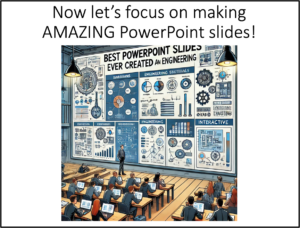STEM Education Workshops
Justin gives engaging and interactive workshops, keynotes, plenary talks, seminars, and panel discussions to faculty, staff, administrators, and students on the broad topics of course and curriculum design, evidence-based teaching practices, SoTL and DBER, and evaluation of teaching practices.
Below are some the most popular topics within these spaces but please contact Justin for workshops or talks on other topics related to higher education teaching and learning.
Specific to your situation
All workshops and talks include pre-workshop Zoom meetings and surveys with relevant stakeholders in order to make the workshops or talks as specific as possible to your university and situation.
Customizable to your needs
- Length (60 minutes to several hours)
- Audience (all faculty, early career faculty, future faculty (graduate students and postdocs), staff, or administrators)
- Frequency (one-time or multi-session)
- Format (in-person, Zoom, or hybrid)

“After attending three of his workshops, it is my belief that Dr. Justin Shaffer is a rising star in pedagogy, one of the new generation to come after foundational folks like Drs. Felder & Brent, Wankat, and Stice. Only one unique attribute is his expertise in both chemical engineering and quantitative biology. Justin is revitalizing pedagogical methods with great intellect, energy, and more diversity experience than most others in the field. It has been a pleasure to learn from him.”
E. Dendy Sloan, University Professor Emeritus, Department of Chemical and Biological Engineering, Colorado School of Mines
High structure course design
Introduces how scaffolding students through the pre-class, in-class, and after-class learning experience of high structure course design improves student learning, engagement, and course outcomes. Includes hands-on guided development of high structure course materials (including learning objectives, reading guides, in-class active learning exercises, and assessment ideas) so that participants leave with tangible additions to their courses and teaching.
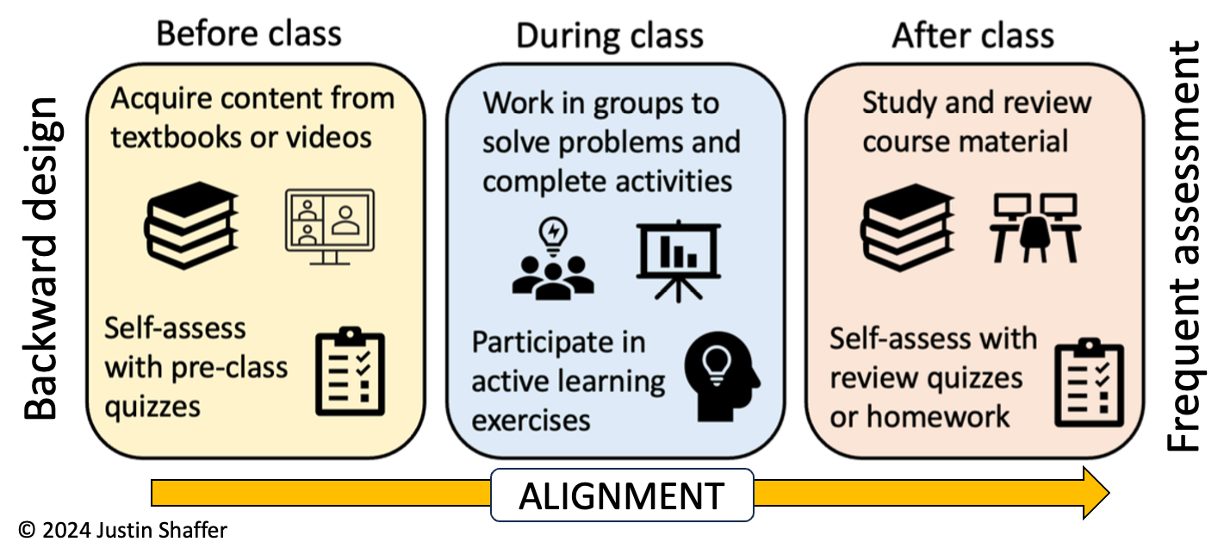
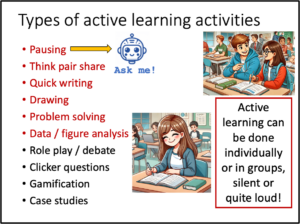
Active learning 101 for STEM courses
Introduces attendees to tried-and-true active learning approaches that can be used in any type of STEM class of any size, from 10 students to 440 students (which Justin has done!). Includes individual and group approaches, analog and tech-dependent ideas, and ways to promote the use of active learning and to overcome potential barriers to faculty and student resistance.
Best practices with classroom response systems
Walks participants how to best make use of all of the “bells and whistles” with modern classroom response system including making good use of different question types (multiple choice, multiple select, numerical, text entry, target) and peer instruction methods to enhance student engagement and learning in STEM courses.
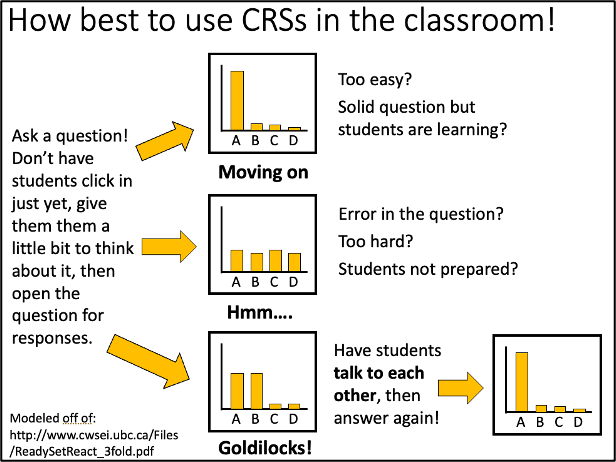
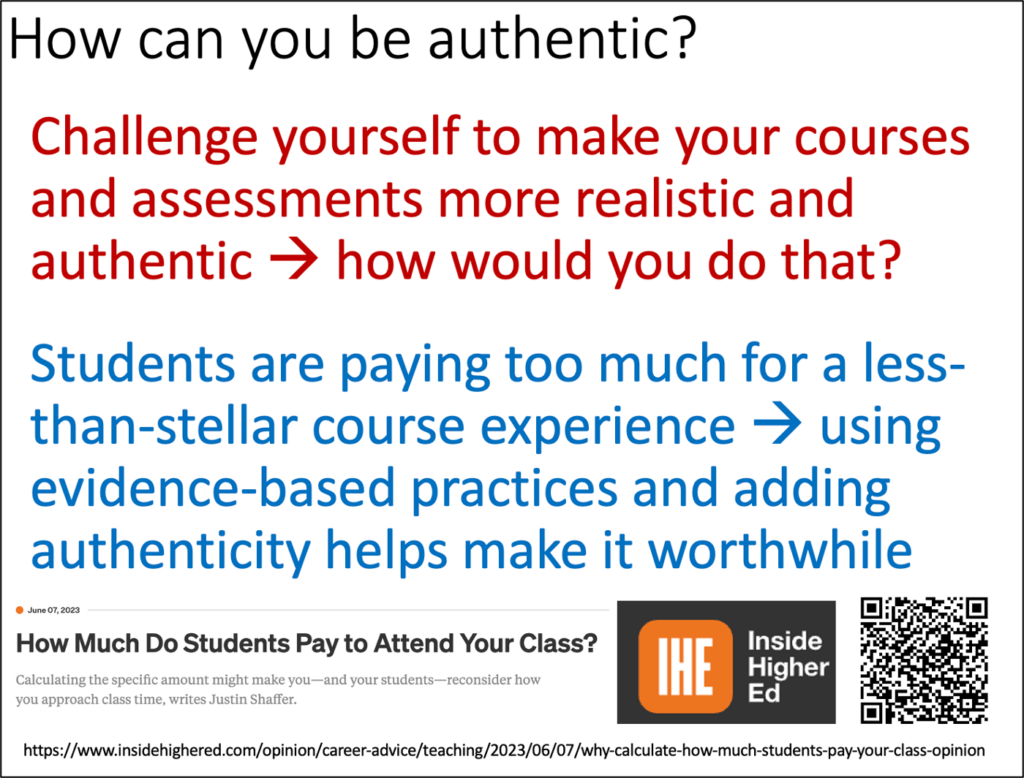
Authentic assessment for STEM courses
Gives attendees an opportunity to think about how to add authentic assessments to their STEM courses in addition to or instead of traditional exam or quiz assessment practices. Includes concrete examples and guidance for developing assessments that capture what students will actually be doing in their careers.
Evaluation of effective teaching
Highlights the various ways of evaluating teaching and course design and provides suggestions for a more holistic evaluation experience (including student evaluations, self-reflections, and peer observation programs) so as to provide data to formatively improve teaching, course design, and student outcomes.
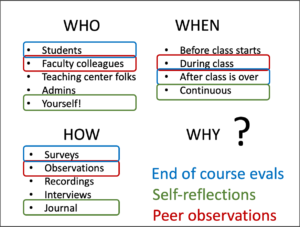
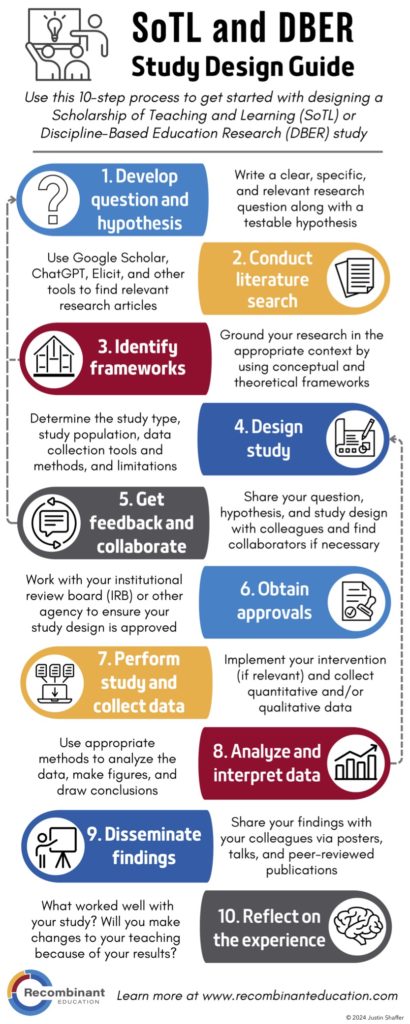
Getting started with SoTL and DBER
Provides an overview of the Scholarship of Teaching and Learning (SoTL) and Discipline-Based Education Research (DBER) to help faculty, staff, and students learn the basics of how to scholarly and scientifically assess courses, curriculum, teaching, and student learning and affect.
Effective Design and Use of PowerPoint for Teaching
Includes an overview of the research behind effective PowerPoint design and use for college courses as well as practical tips for designing PowerPoint slides for engaging students in the learning process in class, no matter your teaching style or discipline.
